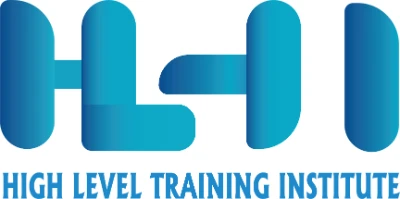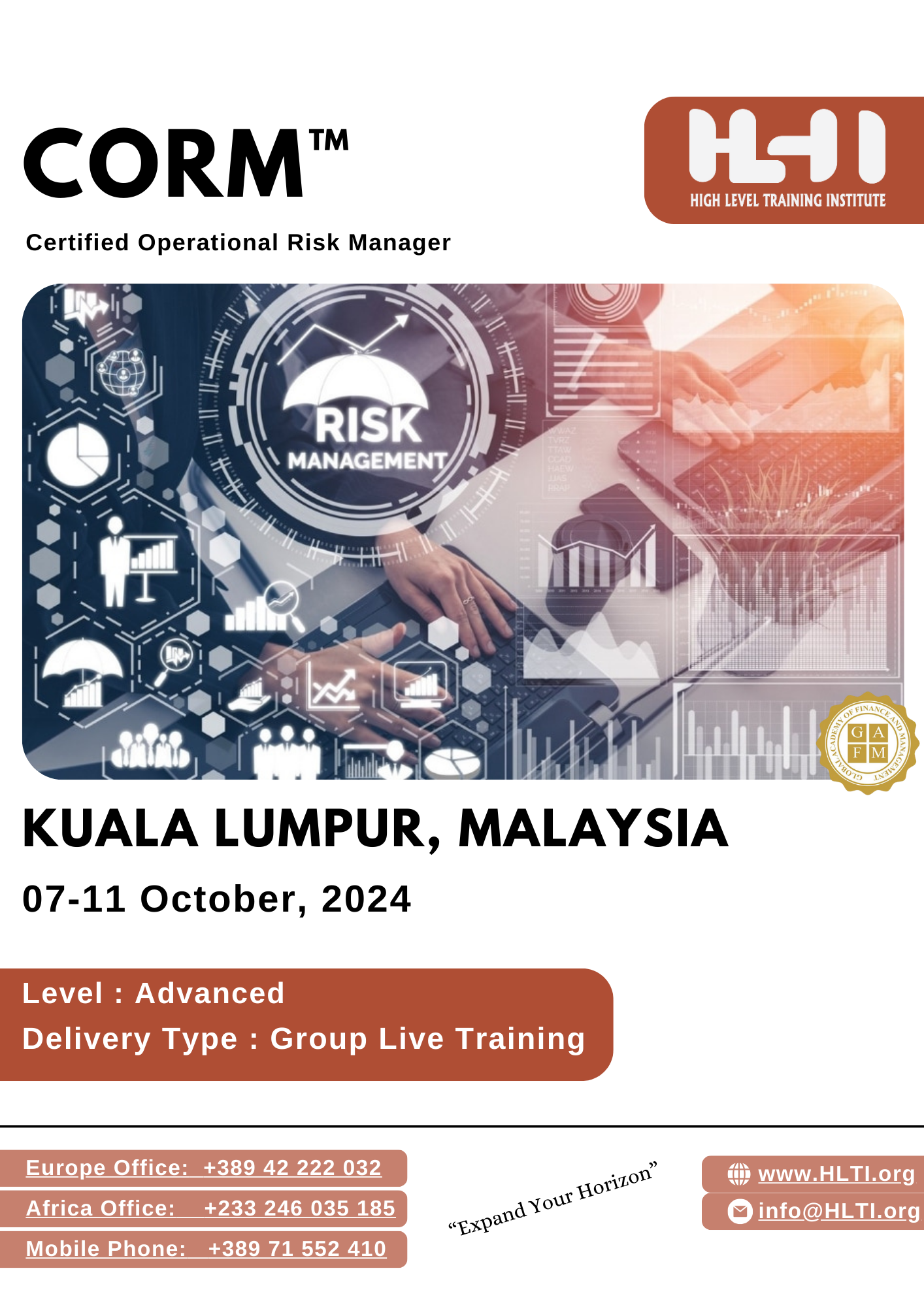CORM Certified Operational Risk Manager™
Operational risk has been firmly established as one of the key principals of the business community for the foreseeable future. While the reappraisal of attitudes to risk continues to spread throughout the industries in the world and the effects of the credit crunch and re-pricing of risk reverberate around us all, the role of the…
Original price was: $4,190.00.$3,790.00Current price is: $3,790.00.
Location: Kuala Lumpur, Malaysia
Course Overview
Operational risk has been firmly established as one of the key principals of the business community for the foreseeable future. While the reappraisal of attitudes to risk continues to spread throughout the industries in the world and the effects of the credit crunch and re-pricing of risk reverberate around us all, the role of the operational risk manager has never been so important of high profile. The program has been comprehensively developed to reflect the new reality of operational risk. It makes use of the latest tools, methods and techniques such as Risk Modeling, Mapping for Operational Risk, Key Risk Indicators, Basel III, Risk Frameworks COSO and RIMs, Risk Quantification (Tornado Diagrams, VaR, Montecarlo etc.) Measuring Operational Risk, Cognitive Capability in Risk Assessment and much more. All topics include discussion, formal assessments, facilitated break-out and group work in order to ensure that you get the most from your time at the program. You can expect a supportive yet challenging environment that will build on your existing experience and guide you through practical achievement.
Benefits of Attending
The purpose of this course is to provide delegates with an in-depth understanding of the practical aspects of operational risk management, particularly, how it fits into an overall enterprise. The course covers best practices in operational risk management. Delegates who complete this course will acquire the necessary skills to:
- Identification of emerging risks
- Risk Reporting and Conduct reporting
- Find solutions to sourcing bottlenecks and risks to ensure on-time delivery of materials
- Building a framework for risk culture change
- How to differentiate and address human errors
- How to use root cause analysis most effectively
- Influencing behaviors for better control
- Implementing ORM: the invisible framework
- Must-know about cyber security and threats
Who Should Attend
The course is ideal for risk practitioners including:
- Operational Risk / Directors / Heads
- Operational Risk Managers
- Operational Risk Specialists / Professionals
- Enterprise Risk Manager
- Auditors / Regulatory Reporting Teams
- Risk Management Directors / Heads
- Internal Auditors
- Finance Risk Manager/Officers
- Compliance officers
- Regulators
- Executive Directors
- Operations Managers/Directors
- Project Risk Managers
PLUS anyone who is responsible for or involved in Risk, Operational Risk or anticipates being involved with Risk or Operational Risk in the future.
Certification Body

The GAFM was founded in 1996 by the original founders of the Graduate Leadership Society. The Founders of our Standards Board are CEOs, Executives, Professors, and industry experts from around the globe. We desire to raise education standards and ethics in the business and management industries. The Standards Policy Board awards specialized board certifications, designations, and charters in the fields of: finance, accounting, management, and consulting fields to qualified professionals who have completed internationally recognized or accredited exams & education, government recognized degrees and documented management credentials and experience. Since 1996, the Academy has been promoting accredited graduate standards for certification in business, management, law, and finance. Since the inception with the founding of the Graduate Institute of Leadership in 1996, the Academy has been focused on quality assurance with accredited education, exams, assessment, education, ethics, and continuing education. Further, applicants must also have the necessary experience in practice, research or publications in their respective areas of expertise.

